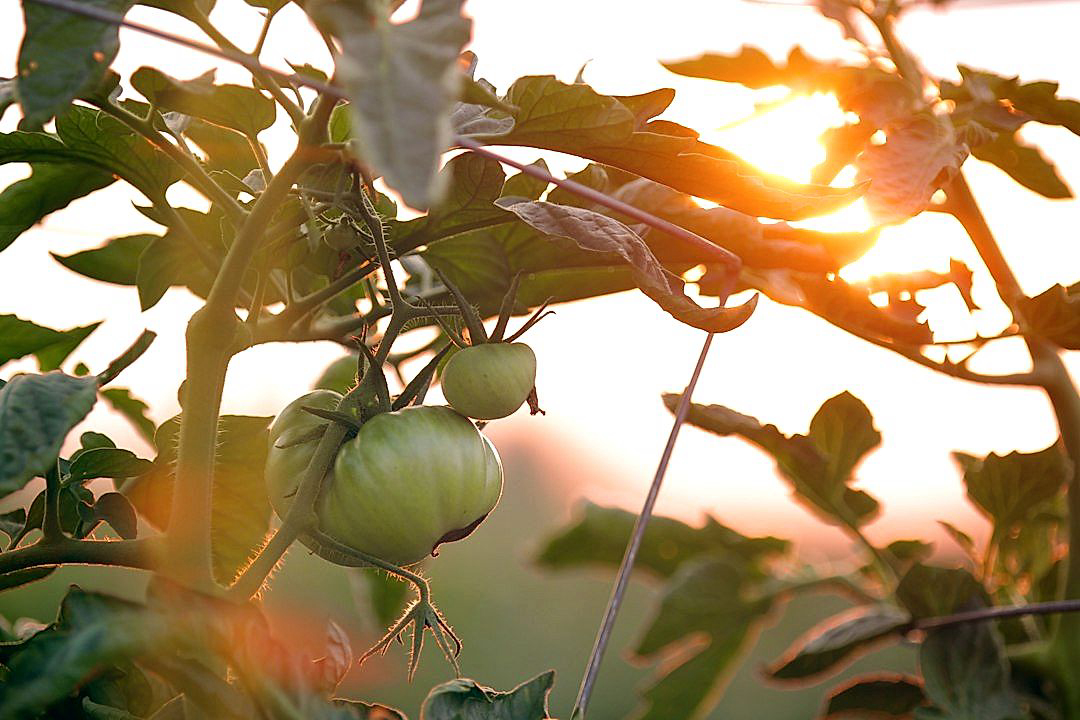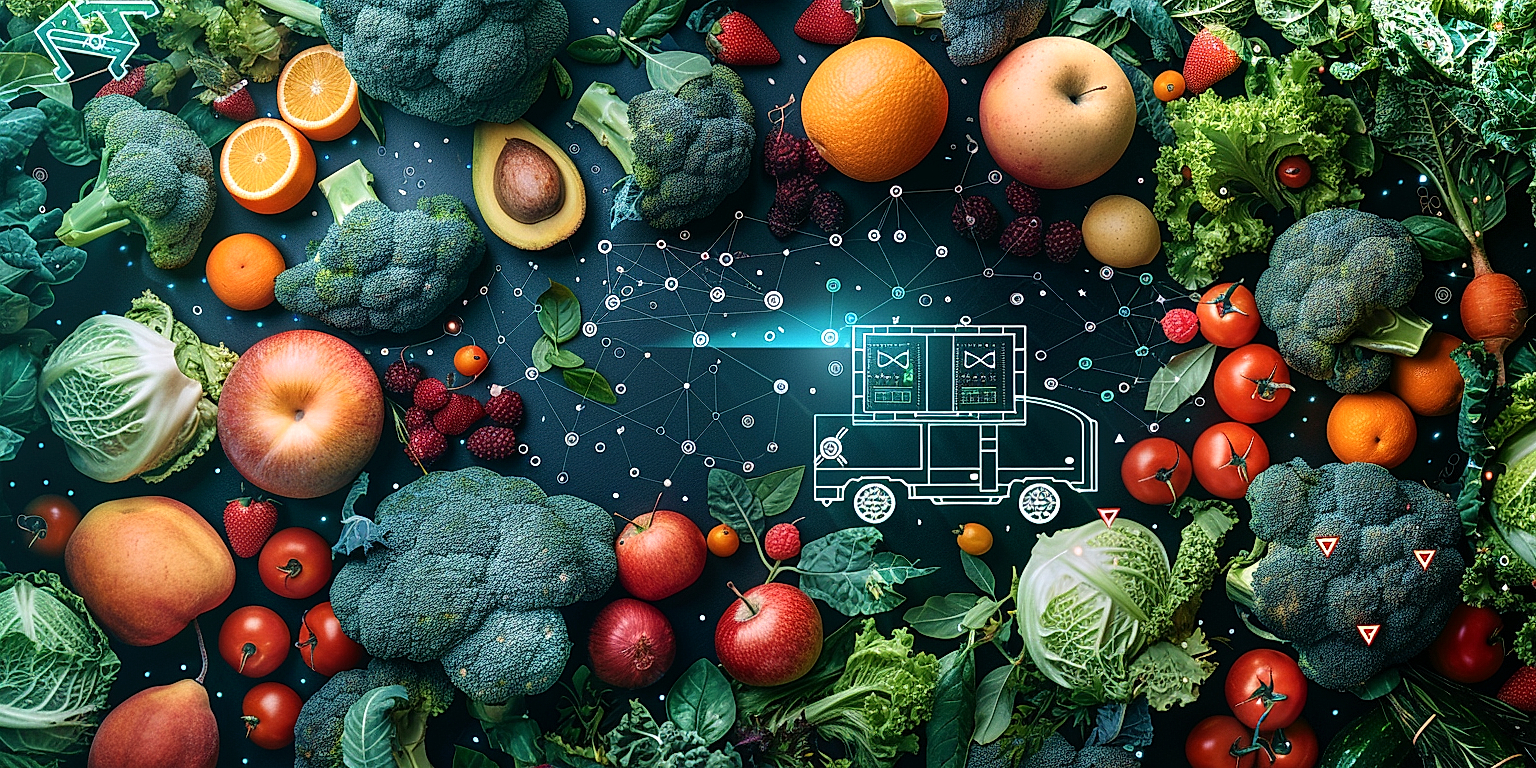Sustainable practices are no longer optional, but essential in today’s ever-evolving marketplace.
The produce shipping industry, like many others, is now facing the compelling responsibility to adapt to the pressing need for sustainability.
Environmental impacts are shifting the way these businesses operate, with considerations of reducing carbon footprints becoming a signal priority.
These trends assert considerable influence on a wide range of operational elements—from packaging to transportation modes.
The repercussions are indeed vast, and businesses are becoming more innovative in response.
This article further delves into these disruptive trends and their implications across the industry.
Sustainability Trends Impacting Produce Shippers
1. Increased demand for locally sourced fruits and vegetables.
In today’s market, there is a distinct shift in consumer preferences towards more locally sourced fruits and vegetables.
The demand for these locally sourced products is not solely tied to a newfound appreciation for fresh, high-quality ingredients.
Rather, it is a reflection of an increasing societal focus on sustainability, where consumers are actively seeking out and supporting farmers and businesses that employ eco-friendly practices.
Locally sourced produce not only provides the obvious benefit of fresher, often tastier ingredients, but it also contributes greatly to reducing the carbon footprint associated with long-haul transportation of goods.
As a direct result of this shift, produce shippers are finding themselves needing to adapt to this growing trend, both in terms of the source of their products and their transportation methods.
Additionally, local sourcing is seen as a more transparent method of operating within the food industry, providing consumers with the assurance they increasingly seek with respect to farming practices, production methods, and overall food safety.
Another important aspect of the preferential shift towards locally sourced produce is the positive impact on local economies.
By supporting local farmers and producers, consumers are directly contributing to the sustainability and growth of their local economies, driving job creation, and supporting community development.
This dynamic has led many produce shippers to partner with local farmers and distributors in an effort to capitalize on this trend.
Thus, it’s not just consumer demand driving this trend towards locally sourced fruits and vegetables, but also the produce shippers who are looking to streamline their processes and enhance their brand reputation by associating with sustainability.
Undoubtedly, the logistics of sourcing locally and ensuring a consistent supply of produce can be challenging.
However, with sufficient planning and effective partnerships, produce shippers can mitigate these risks and turn them into competitive advantages.
In modern time, it’s not about shifting to locally sourced produce as a short-term fad.
Instead, it necessitates a long-term commitment to supporting local economies, reducing environmental impact, and meeting consumer expectations for sustainability and transparency.
Therefore, the increased demand for locally sourced fruits and vegetables is a significant trend impacting produce shippers today, and its influence will surely continue to escalate in the coming years.
2. Growing preference for organic and GMO-free produce.
Over the past decade, consumers have been increasingly demanding organic and GMO-free produce.
This shift is driven by a growing awareness about the potential impact of chemicals and genetically modified organisms (GMOs) on human health and the environment.
People are now willing to pay a premium for fruits and vegetables that have been grown without the use of chemical pesticides, fertilizers or GMOs.
This trend is not just prevalent in the developed world, but there is also a noteworthy demand from emerging economies.
Amid the rising concerns over the environmental impact of industrial agriculture, organic and GMO-free produce has emerged as a sustainable alternative that aligns with the consumers’ goal for a healthier lifestyle.
To cater to this growing consumer appetite, produce shippers are investing in measures to certify their products as organic or GMO-free.
They are sourcing more from local organic farmers and are adapting their supply chains to trace the provenance of their products.
Produce shippers are also experimenting with new farming techniques, such as hydroponics and aquaponics, that can yield organic produce in a more sustainable way.
This transition towards organic and GMO-free produce has significant implications for the business models of produce shippers.
It requires them to rethink their relationships with suppliers, reassess their quality controls, and reorient their marketing strategies to highlight the quality and sustainability advantages of their produce.
The move towards organic and GMO-free produce is also stimulating innovation in the sector by encouraging the use of advanced farming technologies.
These technologies, such as precision agriculture and smart irrigation systems, can enhance yield and sustainability while also dealing with the challenges of organic farming.
Despite the challenges, this trend toward organic and GMO-free produce is likely to persist given the increasing consumer awareness and concern for environmental sustainability.
This is leading to a transformative change in the produce shipping market, as businesses adapt to become more sustainable, and make conscious efforts to meet the demands of the increasingly discerning and echo-conscious consumer.
3. Integration of Eco-friendly Packaging Materials
Among many sustainability trends that have been gaining traction and impacting produce shippers is the integration of eco-friendly packaging materials.
Produce shippers are faced with the dual challenge of not only transporting goods in a safe and fresh condition but also doing so in a manner that does not contribute to environmental pollution.
The traditional packaging materials such as plastic bags and Styrofoam packets, which have been widely used by the industry, are now being seen as a major contributor to plastic waste and pollution.
A key step that shippers are taking to address this problem is the shift to more eco-friendly packaging materials.
These new sustainable materials include compostable or biodegradable plastics, plant-based packaging materials, and recyclable materials.
For instance, some shippers are switching to packaging made from cornstarch, a completely compostable material, instead of traditional plastic.
Others are exploring options like mushroom-based packaging, which is not only biodegradable but also has a lower carbon footprint during production.
Recycled cardboard and paper are also gaining popularity as a sustainable packaging material for fruits and vegetables.
Notably, these eco-friendly packaging options not only reduce the environmental impact but also offer additional benefits for the shippers.
They are often lighter in weight compared to conventional packaging materials, thus allowing for more efficient transportation and lower fuel consumption.
The use of sustainable packaging materials also enhances the brand image of the shippers and can give them a competitive edge in the growing green market.
Furthermore, many countries and states are coming up with regulations to curb the use of single-use plastic, pushing the shippers to switch to sustainable packaging.
However, the transition to eco-friendly packaging does pose certain challenges, such as higher upfront costs and a need for new equipment and training.
Even so, these challenges are considered worthwhile as businesses strive to reduce their environmental footprint and respond to the growing consumer demand for sustainable practices.
Overall, the integration of eco-friendly packaging materials is a significant trend that is shaping the future of produce shipping.
4. Utilization of Low-emission Transportation Methods
The transportation sector plays a vital role in the delivery of produce from farms to markets, retailers, or consumers directly.
However, a significant concern has been its contribution to emissions and environmental pollution.
This concern has prompted innovative solutions like the utilization of low-emission transportation methods.
The popularity and demand for such sustainable transportation methods have been steadily growing in recent years, directly influencing the operating practices of produce shippers.
Embracing low-emission transportation methods has become an effective strategy for produce shippers looking to reduce their carbon footprint, improve sustainability, and meet consumer expectations for environmentally friendly business practices.
This transition to more sustainable transportation includes a variety of tactics and strategies.
Some shippers are turning towards alternate fuel sources that produce fewer emissions such as natural gas, biodiesel, or even electrically powered transport vehicles.
Others are optimizing their shipping routes and schedules to minimize distance traveled or using intermodal logistics that combine different modes of transportation for increased efficiency.
Moreover, technology plays a critical role in this shift, with advancements in transport management systems aiding in route optimization, real-time tracking for minimized idling time, and data analysis to further reduce emissions and fuel consumption.
The potential benefits of this approach are evident not just in environmental terms but also in economic aspects.
Reduced fuel consumption can mean considerable cost savings over time, providing a tangible financial incentive to push for more sustainable practices.
Additionally, the increasing regulations and penalties on high-emission vehicles provide another push for shippers to adopt low-emission transportation.
Yet, the transition is not entirely without challenges – acquiring new equipment or vehicles, adjusting logistics strategies and behaviors, or even challenges related to the availability and infrastructure of more sustainable fuel sources can pose issues.
However, despite these challenges, the momentum towards sustainable transport in the produce shipping sector is undeniable.
Firms that adapt successfully may also reap the benefits of improved business image and relationships with eco-conscious consumers and partners, adding another layer of incentive towards this goal.
5. Implementation of advanced farm technology for efficiency.
The implementation of advanced farm technology for increased efficiency is an essential sustainability trend impacting produce shippers.
The focus on innovative solutions in the agricultural sector is necessary to meet the growing demand for locally-sourced produce.
Farmers are now leveraging advanced technologies, such as precision agriculture and automated systems, to maximize yield and reduce waste.
These technologies not only enhance productivity but also lessen environmental impact, aligning with the global shift towards sustainable practices in the supply chain.
One prominent example is the use of drone technology in farming.
Drones can provide detailed aerial views of a crop field, identifying areas that might need attention, such as pest infestations or water deficiencies.
With such information at hand, farmers can make data-driven decisions on how much of which resources need to be allocated, thereby preventing wastage.
Furthermore, automated harvesting machines enable speedier and more efficient collection of produce, which is especially beneficial in managing perishables that have a short shelf life.
The deployment of Internet of Things (IoT) devices in farming is another game-changer.
These devices can monitor environmental conditions in real-time and adjust farming operations accordingly, resulting in optimal growing conditions and better crop yield.
Smart irrigation systems, for example, can regulate water use based on weather predictions and soil moisture levels, thereby preserving an essential resource and enhancing sustainability.
Moreover, digital platforms are now connecting farmers directly with produce shippers and consumers, reducing the middlemen in the supply chain and ensuring a fresher and more transparent food system.
This direct connect can also reduce the carbon footprint by shortening the transportation routes needed to deliver the produce.
By leveraging advanced technology, farmers and produce shippers can scale up production without compromising on sustainability principles.
And as consumers become more conscious of their environmental impact, this trend will likely continue to grow, further changing the landscape of agriculture and food transportation.
The Bottom Line
In a nutshell, a palpable shift towards sustainable and health-conscious consumer behavior has been on the rise.
More individuals are seeking locally sourced fruits and vegetables, with an increased preference for organic and GMO-free produce.
Green practices are being implemented as well throughout the supply and distribution chains, with the integration of eco-friendly packaging material and the adoption of low-emission transportation methods.
Furthermore, advanced farming technology is being maximized to enhance farm efficiency, thereby reducing waste and supporting the sustainability drive in the sector.
These trends underline the broader changes occurring in society, with sustainability, health, and technology defining the future of food production and consumption.




